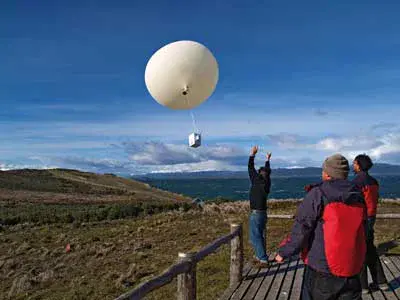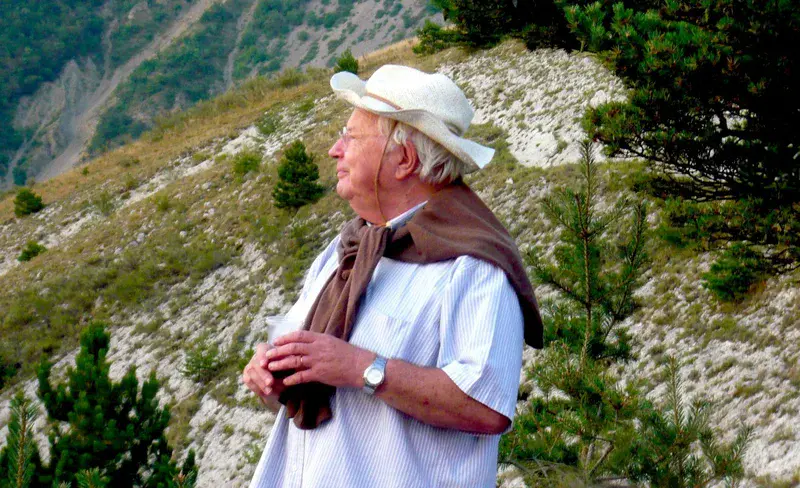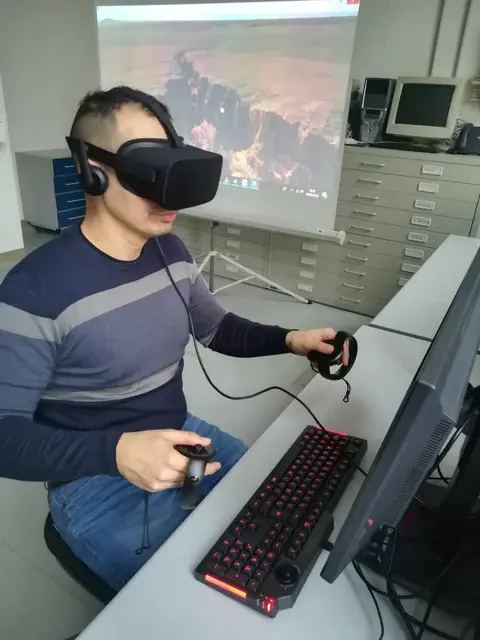
Highlights at a glance
- 08:30 – The Third Pole Environment under global changes (ITS4.8: Room L7); Urban ecohydrology (ITS6.4: Room N1); Wildfire in the environment (SSS10.10: Room -2.32); Hydrology, society and environmental change (HS1.2.2: PICO spot 5b); Satellite observations for space weather and geo-hazards (NH6.9: Posters Hall X3)
- 10:45 – From fundamental atmospheric composition research to societal services (US5: Room E1); From earthquake rupture to landscape building (TS4.2: Posters Hall X2)
- 16:15 – Plan-S: Should scientific publishers be forced to go Open Access? (GDB5: Room E1)
- 19:00 – From Plate Tectonics to Global Tectonics: lecture by Xavier Le Pichon (SAL1: Room E1); Plans for the United Nations Decade of Ocean Science for Sustainable Development (TM2: Room 1.85); A Plastic Ocean: film screening (SCA3: Room E2)
Plan-S: Should scientific publishers be forced to go Open Access?
Plan S, devised by a coalition of research funders with support from the European Commission and European Research Council, demands that by January 1, 2020 research supported by participating funders must be published in Open Access journals. The panelists – David Sweeney (Executive Chair of Research England), Heike Langenberg (Chief Editor of Nature Geoscience), Marc Schiltz (President of Science Europe) and Brooks Hanson (Executive Vice President for Science for the American Geophysical Union) – will present the case for and against mandatory Open Access followed by an open debate with questions and comments from the audience.
GDB5: 16:15–18:00 Room E1

From fundamental atmospheric composition research to societal services / 30 years of the WMO Global Atmosphere Watch Programme
Research in atmospheric composition is becoming increasingly cross-cutting and linked to many disciplines including climate, biogeosciences, hydrology, natural hazards, computer and data sciences, socio-economic studies and many others. While atmospheric composition research is advancing rapidly, there is a need to pay more attention to the translation of this research to support societal needs. In this Union Symposium, we plan to highlight the need for, and to illustrate exciting advances in the translation of atmospheric composition research to support services. This session will also serve as a celebration of the 30 year anniversary of the World Meteorological Organization Global Atmosphere Watch (WOM–GAW) programme.
US5: 10:45–12:15, 14:00–15:30 Room E1
Medal lectures
- Stephan Mueller Medal Lecture by Serge Lallemand: ‘Spontaneity is unlikely in modern subduction initiation processes ‘ (MAL30/TS: 09:15–10:15 Room D3)
- SSS Division Outstanding ECS Lecture by Bahar S. Razavi: ‘Plant- Soil microbial interaction: molecular to ecological perspective ‘ (MAL43/SSS: 10:45–11:15 Room G1)
- GMPV Division Outstanding ECS Lecture by Evangelos Moulas: ‘Grain-scale stresses and metamorphic phase equilibria ‘ (MAL36/GMPV: 10:55–11:25 Room D1)
- Robert Wilhelm Bunsen Medal Lecture by Daniela Rubatto: ‘Catch me if you can: the microscale record of escaping fluids in the crust’ (MAL27/GMPV: 11:25–12:25 Room D1)
- Christiaan Huygens Medal Lecture by Lev V. Eppelbaum: ‘System of potential geophysical field analysis in complex environments and some results of its application’ (MAL10/GI: 11:30–12:30 Room L3)
- Arne Richter Award for Outstanding ECS Lecture by Mathew Domeier: ‘On the stability of Earth’s degree 2 mantle structure ‘ (MAL4/GD: 12:00–12:30 Room -2.21)
- Arthur Holmes Medal Lecture by Jean Braun: ‘Modelling landscape evolution: from simulation to inspiration’ (MAL2/GD/GM/TS: 12:45–13:45 Room E1)
- Lewis Fry Richardson Medal Lecture by Shaun Lovejoy: ‘Weather, macroweather, climate: reuniting Richardson’s strands’ (MAL19/NP: 14:00–15:00 Room E2)
- G Division Outstanding ECS Lecture by Benedikt Soja: ‘Chasing consistency: joint determination of terrestrial and celestial reference frames’ (MAL35/G: 15:30–15:45 Room D2)
- Runcorn-Florenksy Medal Lecture by Tim Van Hoolst: ‘Planetary geodesy as a tool to study the deep interior of planets and satellites’ (MAL28/PS: 16:15–17:15 Room L8)
- AS Division Outstanding ECS Lecture by Gabriele Messori: ‘Variability and extremes of meridional atmospheric heat transport’ (MAL34/AS: 16:15–16:45 Room L3)
- Hans Oeschger Medal Lecture by Edward J. Brook: ‘The atmospheric fingerprints of Dansgaard-Oeschger and Heinrich Events’ (MAL13/CL: 17:00–18:00 Room F2)
- Plinius Medal Lecture by Philip J. Ward: ‘Global water risk dynamics’ (MAL25/NH: 17:00–18:00 Room L6)
- Ian McHarg Medal Lecture by Stefano Nativi: ‘Digital transformation, multi-organizational system-of-systems, and web-based ecosystems’ (MAL15/ESSI: 19:00–20:00 Room L3)
- John Dalton Medal Lecture by Günter Blöschl: ‘Flood generation – process patterns from the raindrop to the ocean’ (MAL17/HS: 19:00–20:00 Room B)
- Louis Néel Medal Lecture by Chris Marone: ‘The Mechanics of slow slip and lab earthquake prediction’ (MAL21/EMRP: 19:00–20:00 Room K1)
- Philippe Duchaufour Medal Lecture by Claire Chenu: ‘From microbial habitats to sustainable and climate smart soils’ (MAL24/SSS: 19:00–20:00 Room G1)
Short courses, networking and early career scientist events
- How to convene and chair a session at the General Assembly (SC1.19: 08:30–10:15 Room -2.85)
- Foundations of geoethics for Earth, marine and atmospheric sciences (SC1.30: 08:30–10:15 Room -2.31)
- Pitching your research to the press: the science of the press release (SC2.9: 08:30–10:15 Room -2.16)
- How to find funding and write a research grant (SC3.16: 10:45–12:30 Room -2.16)
- Wellbeing during the GA, part 1 (SC3.4.1: 12:45–13:45 Room -2.16)
- Funding opportunities: ERC grants (SC3.9: 12:45–13:45 Room 0.14)
- Geology 101: The (hi)story of rocks (SC1.13: 14:00–15:45 Room -2.62)
- How to increase the potential policy impact of your research (SC2.4: 14:00–15:45 Room -2.85)
- Rhyme Your Research (SC2.5: 14:00–15:45 Room -2.16)
- Horizon 2020 and Horizon Europe: navigating EU funding schemes (SC3.2: 16:15–18:00 Room -2.16)
- How to make the most of your PhD or postdoc experience for getting your next job in academia (SC3.19: 16:15–18:00 Room -2.85)
- Diversity & Equality Reception (PCN8: 18:00–19:00 EGU booth)
- ECS Networking and Careers Reception (PCN7: 19:00–20:30 Room F2)
The Third Pole Environment under global changes
The Tibetan Plateau and surrounding mountain regions, known as the Third Pole, cover an area of > 5 million km2 and are considered to be the water tower of Asia. The Pan Third Pole expands on both the north-south and the east-west directions covering an area of about 20 million km2. Like the Arctic and Antarctica, the Pan Third Pole’s environment is extremely sensitive to global climate change. Co-sponsored by TPE (Third Pole Environment), this session is dedicated to studies of Pan Third Pole atmosphere, cryosphere, hydrosphere, and biosphere and their interactions with global change.
ITS4.8/AS4.46/BG1.41/CL3.13/CR1.12/GM5.6:
Orals / 08:30–10:15, 10:45–12:30 Room L7,
Posters / Wed, 08:30–10:15 Hall X5
Plans for the United Nations Decade of Ocean Science for Sustainable Development (2021–2030)
In December 2017, the UN General Assembly proclaimed the United Nations Decade of Ocean Science for Sustainable Development (2021-2030). This decision represents a consensus by the global community on the importance, necessity and key role of ocean science and observations for ocean stewardship and society as a whole. This town hall seeks to raise awareness of the opportunities presented by the Decade, and to encourage the participation of EGU scientists in its planning stages.
TM2: 19:00–20:00 Room 1.85
Urban ecohydrology: from building greening to future cities
This session focuses on urban ecohydrological problems and approaches to solve them, spanning from technical to nature-based solutions in different time and spatial scales from the building to the whole city.
ITS6.4/BG1.29/EOS7.3/AS4.52/CL2.27/HS10.13/SSS13.30:
Orals / 08:30–10:15, 10:45–12:30 Room N1
Posters / Wed, 10:45–12:30 Hall A
Wildfire in the environment: causes, impacts and management.
Wildfire is a global phenomenon responsible in each summer for tremendous environmental, social and economic losses. This session will join researchers that study fire effects on the ecosystems, from prevention to suppression, wildfire modelling, climate change impacts on fire and post-wildfire impacts, either by means of laboratory, field experiments, or numerical modelling.
SSS10.10: Orals / 08:30–10:15 Room -2.32
Posters / 10:45–12:30 Hall X1
From earthquake rupture to landscape building – deformation of the Earth’s surface over multiple timescales
The scope of this session is to bring together state-of-the-art research efforts to better understand how the short-term rate variability that is often recorded on the Earth’s surface integrates to produce uniform large-scale active tectonic processes (i.e. subduction, collision, rifting, transform faulting).
TS4.2: Orals / 16:15–18:00 Room K1
Posters 10:45–12:30 Hall X2
Hydrology, society and environmental change: Panta Rhei (everything flows)
This session features abstracts that consider how to observe, model and analyse interactions of people and water, and the effects of social and environmental changes on hydrological systems. It is organised as part of the International Association of Hydrological Sciences (IAHS) Panta Rhei hydrological decade 2013–2022, and focuses on gains in our understanding of dynamic human-water systems.
HS1.2.2: PICOs / 08:30–10:15 PICO spot 5b
Satellite observations for space weather and geo-hazards
The session features contributions on the use of data from Low-Earth-Orbiting (LEO) satellites making measurements in the thermosphere-ionosphere to investigate ionospheric anomalies related to space weather, geophysical and artificial sources.
NH6.9: Orals / 16:15–18:00 Room M2
Posters / 08:30–10:15 Hall X3

Pangea and lower mantle: Are we entering into a new paradigm? From Plate Tectonics to Global Tectonics by Xavier Le Pichon
During the sixties, the new Plate Tectonics paradigm was established. At a 2018 international meeting, discussions arose on whether for the first time it would be possible to relate without ambiguity plate tectonics and mantle dynamics. In this presentation, Le Pichon shares this point of view and explains why he does so.
SAL1: 19:00–20:00 Room E1
Meet EGU
- Ana Mancho, Executive Editor of Nonlinear Processes in Geophysics: 10:15–10:45
- Stephanie Zihms, Raffaele Albano, and Olivia Trani, EGU ECS Representatives and EGU Comms Officer: 10:45–11:30
- Martin Mai, Outgoing Division President of Seismology: 12:30–13:15
- Heidi Kreibich, Executive Editor of Natural Hazards and Earth System Sciences: 14:00–14:45
- Sonja Martens, Division President of Energy, Resources and the Environment: 15:00–15:45
- Peter van der Beek, Outgoing Division President of Geomorphology and Inter- & Transdisciplinary Sessions Programme Group Chair: 15:45–16:15
- Margit Haberreiter and Olga Malandraki: Outgoing Division President and Incoming Division President of Solar-Terrestrial Sciences: 16:15 – 17:00
EGU booth Hall X2
Feedback meetings
- Editorial board meeting Geochronology (GChron): 10:45–11:45 Room 3.30
- Division meeting for Geodesy (G): 12:45–13:45 Room D2
- Division meeting for Geosciences Instrumentation and Data Systems (GI): 12:45–13:45 Room M1
- Division meeting for Hydrological Sciences (HS): 12:45–13:45 Room B
- Division meeting for Natural Hazards (NH): 12:45–13:45 Room L6
- Division meeting for Planetary and Solar System Sciences (PS): 12:45–13:45 Room 1.61
- Division meeting for Soil System Sciences (SSS): 12:45–13:45 Room G1
- Editorial board meeting of Nonlinear Processes in Geophysics (NPG): 12:45–13:45 Room 3.16
- Editorial board meeting of Atmospheric Chemistry and Physics (ACP): 12:45–13:45 Room 3.29
- Editorial board meeting of The Cryosphere (TC): 12:45–13:45 Room 3.30
- Editorial board meeting of Ocean Science (OS): 12:45–13:45 Room 3.17
- Editorial board meeting of Geoscientific Model Development (GMD): 19:00–20:00 Room 3.30

EGU & Friends, exhibition, and VR demos
Exhibition booths (open Mon–Thu, 10:00–19:00 and Fri, 10:00–13:00) for companies, publishers, research facilities, and scientific organisations, are scattered throughout the brown (basement), yellow (ground floor), and green (first floor) levels. You will find the EGU booth, and a number of other exhibition booths, in the EGU & Friends exhibition area (similar opening hours, some booths open until 19:00 on Friday) in Hall X2. This is the place to go to meet the faces of the European Geosciences Union and learn more about what the EGU does, including outside the EGU meeting. During the networking time slot (18:00–19:00), there will be a number of receptions at the booth. At the same time, at the virtual reality station nearby, you’ll have the chance to experience different geological landscapes in virtual reality with Fabio Bonali, one of the winners of the EGU Public Engagement Grants 2018, and his team.
What’s on tomorrow
- Rewards and recognition in science: what value should we place on contributions that cannot be easily measured (GDB4: 10:45–12:30 Room E1)
- Science, Politics and European (dis)integration: A conversation of Geoscientists with Ilaria Capua and Mario Monti (SCS1: 12:45–14:00 Room E1)
- EGU Award Ceremony (PCN3: 17:30–20:00 Room E1)
About
EGU Today helps you keep up with the many activities at the General Assembly by highlighting sessions and events from the programme. If you have comments, email the editor Bárbara Ferreira at media@egu.eu. The newsletter is available at https://www.egu.eu/egutoday/, on the EGU General Assembly mobile app, and on screens around the conference centre.
The Assembly Online
LinkedIn
Instagram
YouTube
Facebook
Mastodon
Bluesky
blogs.egu.eu, geolog.egu.eu
www.egu.eu